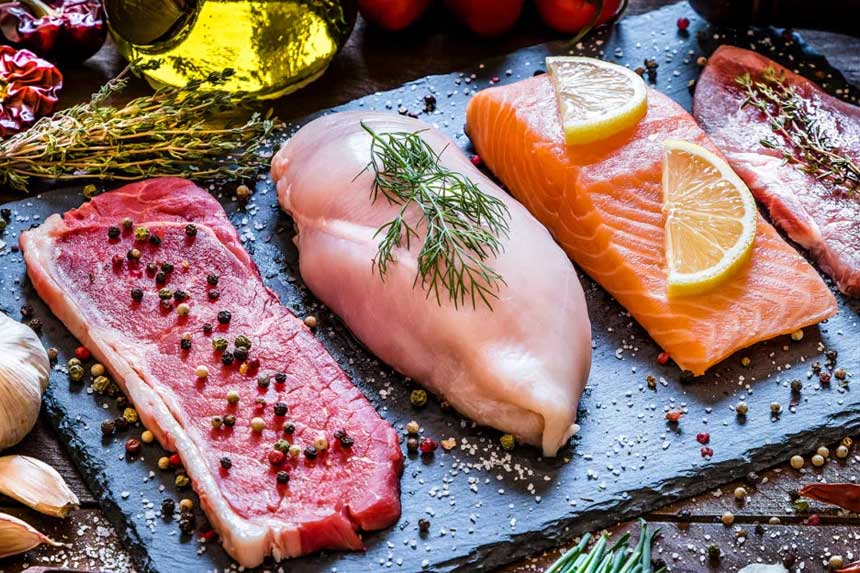Spinach

Spinach, a green leafy vegetable, stands out as an excellent iron source for vegetarians. With 2.7 mg of iron per 100 grams, spinach boasts 28 mg of vitamin C, promoting better iron absorption. This leafy green isn’t just an iron powerhouse; it’s a nutritional treasure trove. Rich in vitamins A and K and minerals like magnesium and manganese, spinach contributes to eye and bone health. Additionally, its consumption regulates blood pressure, reduces cancer risk, and alleviates constipation.
By incorporating spinach into your diet, you not only address iron deficiency but also benefit from its wide array of nutrients. Whether raw in salads or cooked with tomatoes for enhanced iron absorption, spinach provides a versatile and healthful addition to your meals.
Poultry, Red Meat & Fish

For non-vegetarians, poultry, red meat, and fish offer delectable ways to meet iron requirements. Red meat, such as ground beef, contains 2.7 mg of iron per 100 grams, along with B complex vitamins, selenium, zinc, and protein. Likewise, chicken provides 1.3 mg of iron per 100 grams. Fish varieties like tuna, sardines, and mackerel are rich iron sources.
These meaty options not only deliver essential iron but also contribute to overall health. Regular consumption reduces the risk of iron deficiency, ensuring robust hemoglobin levels. Beyond iron, the B complex vitamins, proteins, and other minerals in these meats support various bodily functions, making them valuable additions to a balanced diet. [3]





